Music Is a Universal Language
Luther grads are global citizens. In few areas is this more evident than in our wide array of alumni teaching music abroad. These exploratory, open-minded, open-hearted teachers take their strong Luther background in music education to schools around the world, enriching young musicians and themselves. The accounts below—which are just a handful of many such internationally based Luther music educators—represent teaching experiences on five continents.
Jay Londgren ’06
Director of high school bands and jazz, head of performing arts, and VPA instructional coach at Singapore American School (previously taught in Venezuela and South Korea). Years teaching abroad: 18.
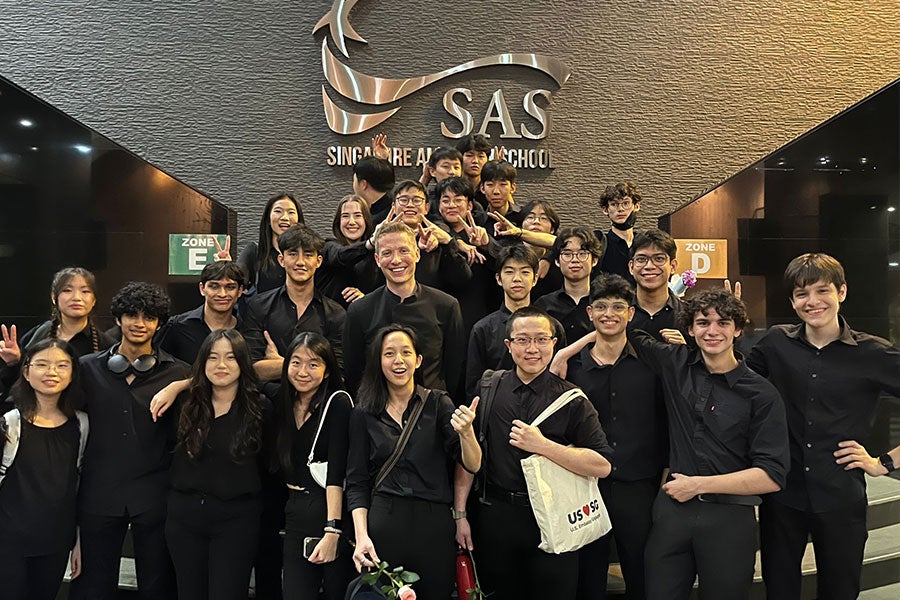
Tell us about your start teaching abroad.
When I was at Luther, there was a program of student teaching placements abroad spearheaded by Dr. Jim Langholz ’77. I actually student taught in the classroom where I now work here in Singapore. That experience got me several interviews, which led to my job in Venezuela, then to Korea, then ultimately back to Singapore.
Tell us about your school and ensemble(s).
SAS is the largest single-campus international school in the world. I’m fortunate in that the school is large enough to allow me to focus just on high school band. That is rare overseas. In Korea, I taught 6–12 band. In Venezuela, I taught PreK–12 music. It’s a privilege to get to focus entirely on my biggest area of passion.
What delights you about your adopted country’s culture?
The biggest thing by far is my Singaporean husband, Clement. Through him and his family, I’ve learned so much about Singapore and its unique place in the world.
What should people consider when thinking about teaching music abroad?
Living abroad won’t magically fix or change something in your life. However, if you’re the type of person who is willing to learn as much (or more) as you’re planning to teach, I can recommend international education wholeheartedly.
You currently serve as president of the Association for Music in International Schools (AMIS). Why did you get involved with AMIS?
AMIS (not a coincidence that it is the French word for “friend”) is about connecting people—both students from around the world and music teachers in international schools who may, in many cases, be one of a few or even the only music educator at their school. They can come to an AMIS event and be surrounded by people who just understand. It’s really quite magical.
You’re also an avid traveler—can you tell us more?
I’ve visited 44 countries and taken 482 flights in my life, totalling roughly 1.1 million miles—or just about five trips to the moon. Other than my students, traveling is the best teacher I have.
Emmalee Johnson ’12
Orchestra and IB music teacher and head of 6–12 Performing Arts at Seoul Foreign School in South Korea (previously taught at Asia Pacific International School in South Korea). Years teaching abroad: 8.
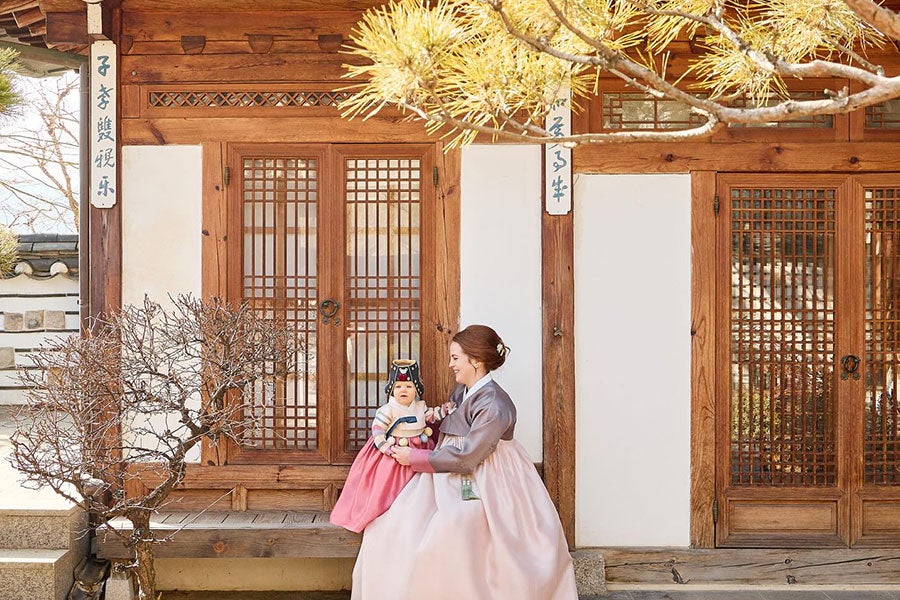
Tell us about your school.
Music is alive and well at SFS! In grades 6–12 we have six bands, two jazz bands, six orchestras, and five choirs. It’s a big school with a really lovely campus on the side of a mountain but still in the city of Seoul. SFS is BUSY and vibrant.
What’s something valuable you learned from teaching in this context?
Things aren’t always what they appear. Most years, my orchestra appears overwhelmingly Korean by heritage, but most of my students experience moments of feeling like they don’t belong because they’ve spent more than a few years living in different countries. They end up being their own blend of cultures, which can make their actions or thoughts behind choices less obvious.
What has surprised you about living in your adopted country?
After living outside the U.S. for 11 years, I’ve almost forgotten what it feels like to be truly surprised! When I first moved to Korea, I was constantly struck by the affordability of public transit and healthcare, the exciting new flavors, and the dramatic shifts in weather. No matter where I go, there’s always an adjustment period, but over time, I’ve come to expect the unexpected.
Kristin (Solverson) Symes ’06
Teaches general music and choir K–4, choir K–6, and senior choir director 7–12 at Geelong Lutheran College in Victoria, Australia (previously taught at Singapore American School in Singapore). Years teaching abroad: 19.
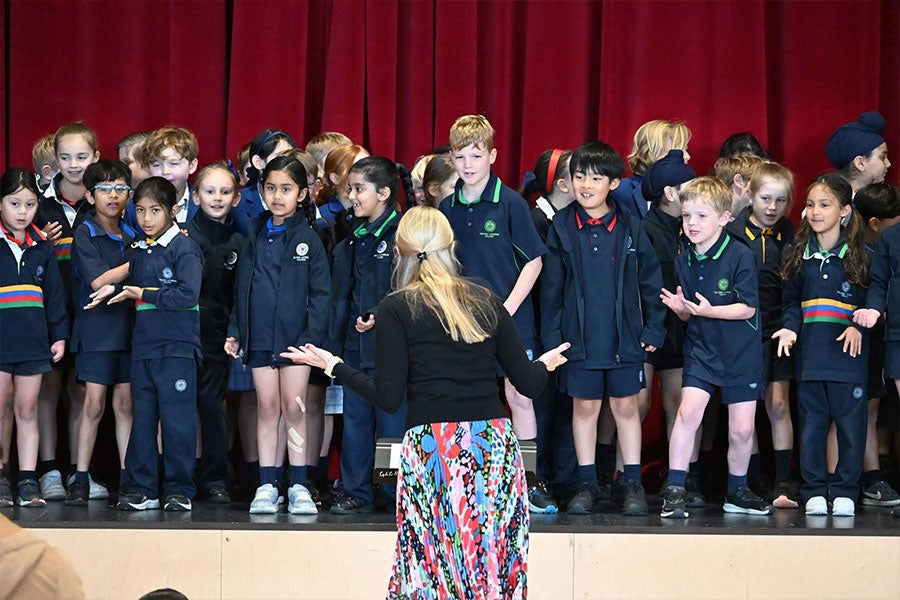
Tell us about your start teaching abroad.
During one of my Luther classes, Dr. Jim Langholz ’77 inspired me to look into student teaching abroad. I was accepted to student teach at Singapore American School, where several Luther grads were teaching. After graduation, I taught there for 17 years. I was also fortunate to perform as a soprano soloist with the Singapore Lyric Opera and various concert settings during my time in Singapore.
During Covid, my family and I moved to Australia to be near my husband’s family and to continue teaching there. Along with teaching in Australia, I have also started my own voice and vocology studio helping singers/performers habilitate their voices from vocal trauma or pathologies. Teaching abroad has been one of the most life-changing experiences for me. Now, being overseas for 19 years, it continues to shape my global perspective of music education.
What’s something valuable you learned from teaching in this context?
The power of adaptability and humor in the classroom.
What delights you about your adopted country’s culture?
The laid-back lifestyle and humor in everything. Well-being is a BIG focus here in schools and the broader community, which decreases overall stress and the underlying intensity of life.
What should people consider when thinking about teaching music abroad?
1. Be ready for cultural differences and be open-minded! Even though Australia is an English-speaking country, there are many cultural differences in day-to-day life. 2. Your teaching style and expectations may need to adapt. 3. Building a support network is crucial. 4. It isn’t easy, but it is SO WORTH IT! Your life will forever change for the better.
Christopher O’Connell ’18
Band director (grades 6–12) at Chiang Mai International School in Thailand. Years teaching abroad: 2.
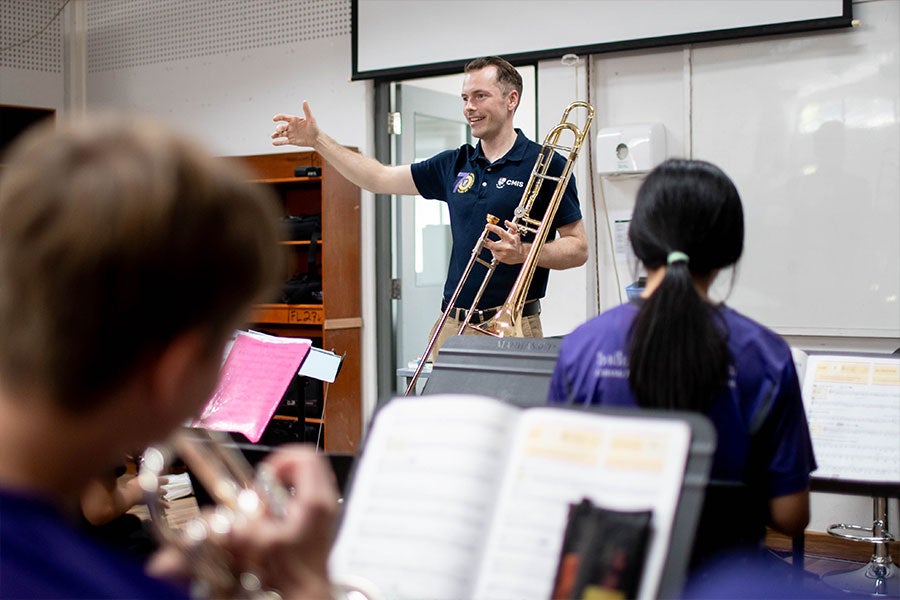
Tell us about your start teaching abroad.
About two years ago, I saw a post by another Luther alumnus on an alumni Facebook page about an opening for a band position in the “jungle paradise” of Thailand. On a whim, I decided to reach out and ask him about it. He explained the whole situation, and since I was on the tail end of the application process, things moved quickly. I sent in a resume, had an interview, and within two weeks of first learning about the job, I had accepted the position and started contemplating life in a new country!
What challenges or advantages do you notice teaching music at your school that you might not have at an American school?
The biggest challenge has been building a band program when working with a transient student population. In the U.S., if a student starts band in sixth grade, there’s a pretty strong likelihood they’ll graduate high school from the same school district. Here, students may only be around for two or three years before their family moves to a new country. It’s a heartbreaking day when your kindest, most caring (and best!) clarinet player tells you he’s moving to a new country next year! And it happens multiple times every year.
What has surprised you about living in your adopted country?
Chiang Mai is a hub for digital nomads. People come and go constantly. I meet new people every week who disappear just as quickly, only to turn up again months later. It can be exhausting, but it also means after only two years of living here I have friends I can visit all over the world!
What should people consider when thinking about living and working abroad?
Absolutely do it if you are considering it! I’ve learned so much from my experience working with these students as well as with international educators. Getting exposure to other school curricula opens your eyes to better ways of teaching. Bringing this knowledge back to the U.S. will make you a better teacher and help your students see the world in a broader way.
Tori (LaCroix) Norris ’14
Primary school music teacher (currently on break to raise her son) in Basel, Switzerland. Years teaching abroad: 5.
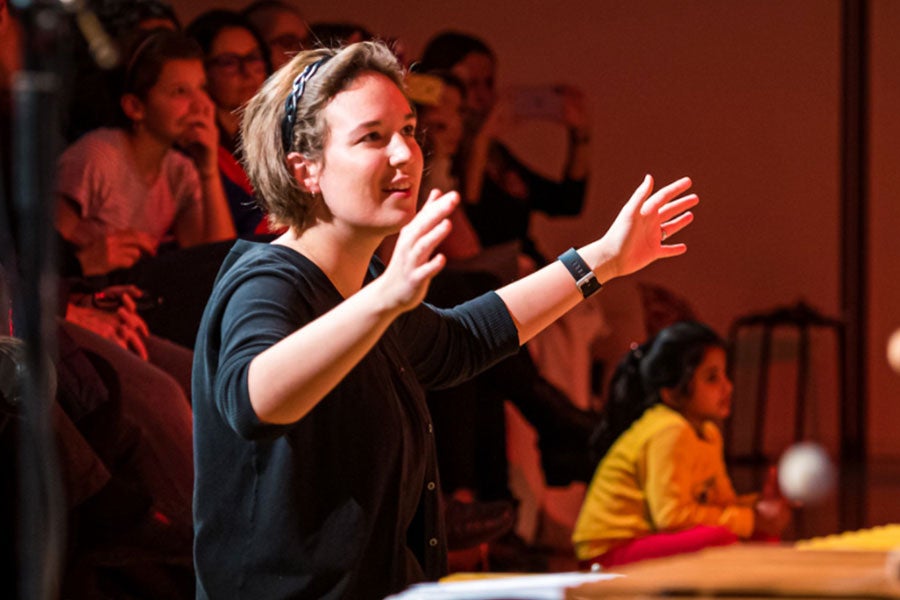
Tell us about your school.
It’s an international school, with students from all over the world who speak a plethora of languages. Basel is a city full of expats, and many families come here to work as part of the pharmaceutical industry or other international industries. There are also local families—Swiss, German, and French.
What challenges or advantages do you notice teaching music at your school that you might not have at an American school?
In general, I find that there’s a greater openness and curiosity to learn about one another in a nonjudgmental, nonthreatening, genuinely positive manner. With nearly 60 different nationalities at our school and a plethora of different cultures therein, you have to be willing and able to meet people where they are in a welcoming way. I am fortunate that my subject—music—is often a vehicle for unity and common experience.
Tell us about a favorite teaching moment.
I feel such joy when I see a current student helping a new student who speaks no English, by explaining things to them and making them feel welcome in a language that they both speak.
Another moment was attending the 2023 AMIS high school honor choir in Muscat, Oman, as a chaperone. It was such a magical musical experience for the students, teachers (many of whom graduated from Luther!), and audience members. To look up and see so many students (200+) of so many cultures, races, and creeds singing together still gives me goosebumps when I think back on that time.
What’s something valuable you learned from teaching in this context?
We have more similarities than differences.
What has surprised you about living in your adopted country?
Living in Switzerland, I’m often reminded of my time at Luther. I’ve experienced kindness and warmth from strangers and friends—both expats and locals—in ways similar to when I was studying in Iowa.
What should people consider when thinking about teaching music abroad?
If you’re looking to create the current life you have in the U.S. as your life abroad, you will be disappointed and miss out on so much. Instead, embrace the richness of living in a place with a different culture and language from what you’re used to. Say yes, go out of your comfort zone, and your life will be incredibly enriched!
Brandon Fraseur ’03
Athletics and activities director at Seoul International School in South Korea (previously taught as an elementary-level music educator at Concordia International School Shanghai and the American School of Dubai). Years teaching abroad: 9.
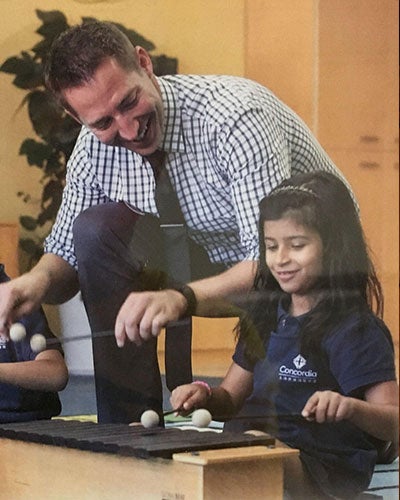
Tell us about your start teaching abroad.
I taught in the U.S. (mostly in Iowa) for 12 years before choosing to go overseas. The year before I moved overseas, two other Luther grads I knew from the choral music world—Adrienne (Moyer) Gerst ’00 and Darcy Hendriks ’00—took positions in Shanghai and Dubai. Hearing about their positive experiences motivated me to pursue the experience as well. My first overseas job was at Concordia International School Shanghai, where Steven Nurre ’78 was the assistant head of school at the time.
Tell us about your schools.
Each school has its own character, and the same can be said about their host cities and countries. The challenges and gifts of immersing myself in different cultures and societies has been one of the greatest rewards of working overseas.
What should people consider when thinking about teaching abroad?
For those thinking about teaching abroad, the main thing I would encourage is for people to keep an open mind about regions of the world to work. I never thought I would call China home for part of my life, but Shanghai was an incredible city to live and work in, and it allowed me to grow as a professional and person.
Jason Mott ’10
High school instrumental music teacher (three bands, one orchestra, and a beginning guitar class) at the American School of Dubai in the United Arab Emirates (previously taught in Shanghai, China). Years teaching abroad: 15.
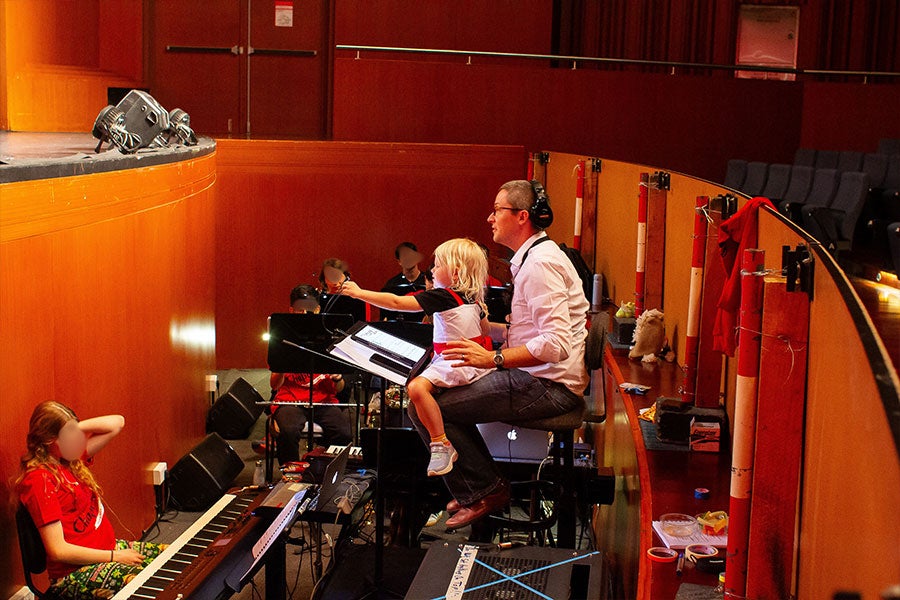
Tell us about your start teaching abroad.
My wife went to the University of Northern Iowa (UNI). When we were dating, we went to the international teacher job fair there, and it was crazy. Giving little elevator pitches to administrators, taking all kinds of interviews, and then we only had a few days to accept an offer from a school in Shanghai. As far as getting the position I currently have in Dubai, I did have a Luther connection—the high school choir director is a Luther grad!
Tell us about your school.
ASD is a very American-style school. We offer the AP program, and there’s a big emphasis on our athletics and arts program. There are many international schools in Dubai, and families choose our school for this unique aspect. Our music program is similar to a strong Midwest music program.
What challenges or advantages do you notice teaching music at your school that you might not have at an American school?
Overall, students have more resources available to them. There is less of a challenge with families not being able to afford an instrument.
Tell us about a favorite teaching moment.
This year, our musical pit band was entirely made up of students. This had never happened before in the history of our school, so it was really exciting (and challenging) to have only students in there, including on the keyboard 1 part. It was very rewarding to have a group of students that could pull that off.
What has surprised you about living in your adopted country?
I thought that the United Arab Emirates would be very conservative and strict, and it is far from it.
What delights you about your adopted country’s culture?
Eighty percent of the population of Dubai are not Emirati, so Dubai’s culture is a melting pot of many different countries.
What should people consider when thinking about teaching music abroad?
It’s an amazing experience, especially if jobs are hard to come by when music students are graduating. And it often has a better package than teaching in the U.S. You can always go back home after a few years—have an adventure first!